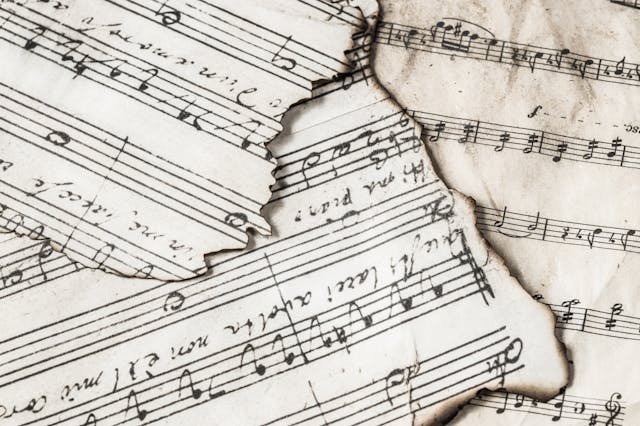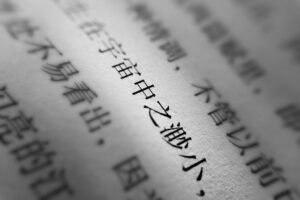Music is a universal language that transcends borders and cultures, and understanding how to describe various music genres in Chinese can greatly enhance your ability to communicate about one of the world’s most powerful forms of expression. Whether you’re a music enthusiast, a student, or a traveler hoping to explore China’s rich musical traditions, learning to talk about music in Chinese will open doors to deeper conversations and connections.
In this article, we’ll explore vocabulary related to different music genres, from classical and pop to traditional Chinese music and more. Along the way, we’ll introduce you to key terms, explain their context, and provide examples of how they are used. If you’re interested in further expanding your knowledge of Chinese through music or other cultural topics, we invite you to join our Chinese classes at LC Chinese School in Oslo. You can register through this link.
Table of Contents
Toggle1. Basic Vocabulary for Music in Chinese
Before diving into specific genres, it’s important to understand some basic terms related to music in general:
- 音乐 (yīnyuè) – Music
- Example: 我喜欢听音乐。(Wǒ xǐhuān tīng yīnyuè.) — “I like listening to music.”
- 乐器 (yuèqì) – Musical instrument
- Example: 你会弹什么乐器?(Nǐ huì tán shénme yuèqì?) — “What musical instrument can you play?”
- 歌曲 (gēqǔ) – Song
- Example: 这首歌曲很流行。(Zhè shǒu gēqǔ hěn liúxíng.) — “This song is very popular.”
- 演唱 (yǎnchàng) – To sing or perform
- Example: 他在舞台上演唱得非常好。(Tā zài wǔtái shàng yǎnchàng de fēicháng hǎo.) — “He performed very well on stage.”
- 作曲 (zuòqǔ) – To compose (music)
- Example: 他从事作曲多年了。(Tā cóngshì zuòqǔ duō nián le.) — “He has been composing music for many years.”
Now that you have a foundation, let’s explore how to talk about specific music genres.
2. Pop Music – 流行音乐 (liúxíng yīnyuè)
Pop music, or 流行音乐 (liúxíng yīnyuè), is one of the most common genres in modern music. It’s characterized by catchy melodies, simple lyrics, and a focus on popular trends. Many Chinese pop songs, also known as 华语流行音乐 (huáyǔ liúxíng yīnyuè), are extremely popular across China, Taiwan, and other Chinese-speaking regions.
- 流行 (liúxíng) – Popular
- Example: 这首歌在年轻人中非常流行。(Zhè shǒu gē zài niánqīng rén zhōng fēicháng liúxíng.) — “This song is very popular among young people.”
- 偶像 (ǒuxiàng) – Idol (as in pop stars or singers)
- Example: 这个偶像团体很有名。(Zhège ǒuxiàng tuántǐ hěn yǒumíng.) — “This idol group is very famous.”
- 排行榜 (páihángbǎng) – Music chart
- Example: 这首歌在排行榜上排名第一。(Zhè shǒu gē zài páihángbǎng shàng páimíng dì yī.) — “This song is ranked number one on the music charts.”
3. Classical Music – 古典音乐 (gǔdiǎn yīnyuè)
Classical music is known as 古典音乐 (gǔdiǎn yīnyuè) in Chinese. This genre includes compositions from famous Western composers like Beethoven and Mozart, as well as traditional Chinese classical music played on instruments like the guzheng and erhu.
- 交响乐 (jiāoxiǎngyuè) – Symphony
- Example: 我们昨晚去听了一场交响乐演出。(Wǒmen zuówǎn qù tīng le yī chǎng jiāoxiǎngyuè yǎnchū.) — “We went to a symphony concert last night.”
- 钢琴曲 (gāngqínqǔ) – Piano piece
- Example: 这首钢琴曲非常优美。(Zhè shǒu gāngqínqǔ fēicháng yōuměi.) — “This piano piece is very beautiful.”
- 室内乐 (shìnèiyuè) – Chamber music
- Example: 她喜欢听室内乐。(Tā xǐhuān tīng shìnèiyuè.) — “She likes listening to chamber music.”
- 指挥 (zhǐhuī) – Conductor
- Example: 指挥带领乐团演奏得非常出色。(Zhǐhuī dàilǐng yuètuán yǎnzòu de fēicháng chūsè.) — “The conductor led the orchestra brilliantly.”
4. Rock Music – 摇滚乐 (yáogǔn yuè)
Rock music, known as 摇滚乐 (yáogǔn yuè) in Chinese, is a genre that originated in the West but has become popular globally, including in China. It’s characterized by its strong rhythms, electric guitars, and energetic performances.
- 摇滚 (yáogǔn) – Rock
- Example: 他是一个摇滚乐队的主唱。(Tā shì yī gè yáogǔn yuèduì de zhǔchàng.) — “He is the lead singer of a rock band.”
- 重金属 (zhòngjīnshǔ) – Heavy metal
- Example: 重金属音乐非常强劲有力。(Zhòngjīnshǔ yīnyuè fēicháng qiángjìng yǒulì.) — “Heavy metal music is very powerful and intense.”
- 朋克 (péngkè) – Punk
- Example: 朋克音乐带有强烈的反叛精神。(Péngkè yīnyuè dàiyǒu qiángliè de fǎnpàn jīngshén.) — “Punk music carries a strong rebellious spirit.”
5. Jazz Music – 爵士乐 (juéshìyuè)
Jazz, or 爵士乐 (juéshìyuè), is a genre that has also found a dedicated audience in China. Its improvisational nature and complex harmonies make it appealing to both musicians and music lovers.
- 即兴演奏 (jíxìng yǎnzòu) – Improvisation
- Example: 爵士乐最大的特点是即兴演奏。(Juéshìyuè zuìdà de tèdiǎn shì jíxìng yǎnzòu.) — “The biggest feature of jazz music is improvisation.”
- 萨克斯 (sàkèsī) – Saxophone
- Example: 他是一个很有名的萨克斯手。(Tā shì yī gè hěn yǒumíng de sàkèsī shǒu.) — “He is a very famous saxophonist.”
- 蓝调 (lándiào) – Blues
- Example: 爵士乐和蓝调有着深厚的渊源。(Juéshìyuè hé lándiào yǒuzhe shēnhòu de yuānyuán.) — “Jazz and blues share deep roots.”
6. Hip-Hop Music – 嘻哈音乐 (xīhā yīnyuè)
Hip-hop, or 嘻哈音乐 (xīhā yīnyuè), is an increasingly popular genre in China, especially among younger generations. It includes elements like rapping, DJing, breakdancing, and graffiti art.
- 说唱 (shuōchàng) – Rap
- Example: 他的说唱技巧非常出色。(Tā de shuōchàng jìqiǎo fēicháng chūsè.) — “His rapping skills are excellent.”
- 节奏 (jiézòu) – Rhythm
- Example: 嘻哈音乐的节奏感很强。(Xīhā yīnyuè de jiézòu gǎn hěn qiáng.) — “Hip-hop music has a strong sense of rhythm.”
- 街头文化 (jiētóu wénhuà) – Street culture
- Example: 嘻哈音乐起源于街头文化。(Xīhā yīnyuè qǐyuán yú jiētóu wénhuà.) — “Hip-hop music originated from street culture.”
7. Electronic Music – 电子音乐 (diànzǐ yīnyuè)
Electronic music, or 电子音乐 (diànzǐ yīnyuè), is a genre that uses electronic technology and instruments to produce sound. It’s highly popular in nightclubs and at festivals.
- 电子 (diànzǐ) – Electronic
- Example: 电子音乐常用于舞曲和派对。(Diànzǐ yīnyuè cháng yòng yú wǔqǔ hé pàiduì.) — “Electronic music is often used for dance tracks and parties.”
- DJ (díjié) – DJ
- Example: 这个DJ在国际上非常有名。(Zhège DJ zài guójì shàng fēicháng yǒumíng.) — “This DJ is very famous internationally.”
- 混音 (hùnyīn) – Remix
- Example: 这首歌的混音版更适合跳舞。(Zhè shǒu gē de hùnyīn bǎn gèng shìhé tiàowǔ.) — “The remix of this song is more suitable for dancing.”
8. Traditional Chinese Music – 传统音乐 (chuántǒng yīnyuè)
Traditional Chinese music, or 传统音乐 (chuántǒng yīnyuè), includes genres that have been played in China for centuries, often using traditional instruments like the 古筝 (gǔzhēng), 二胡 (èrhú), and 琵琶 (pípá).
- 民乐 (mínyuè) – Folk music
- Example: 中国的民乐有着悠久的历史。(Zhōngguó de mínyuè yǒuzhe yōujiǔ de lìshǐ.) — “Chinese folk music has a long history.”
- 器乐 (qìyuè) – Instrumental music
- Example: 这种器乐表演非常具有民族特色。(Zhè zhǒng qìyuè biǎoyǎn fēicháng jùyǒu mínzú tèsè.) — “This instrumental performance has strong ethnic characteristics.”
If you’re interested in diving deeper into learning Chinese and mastering the vocabulary related to music or other cultural topics, consider joining our Chinese classes at LC Chinese School in Oslo. Our flexible courses are designed to meet the needs of students at all levels. To learn more and register, visit this link.
Conclusion
Music plays an important role in culture, and being able to discuss various music genres in Chinese will broaden your horizons and improve your communication skills in this universal language. Whether you’re talking about classical symphonies, pop hits, or traditional Chinese melodies, this vocabulary will help you express your thoughts clearly and effectively.
To take your Chinese learning journey to the next level, we invite you to join our courses at LC Chinese School in Oslo. Our tailored classes focus on helping students develop fluency in both conversation and comprehension of Chinese culture. Register today by visiting this link.








